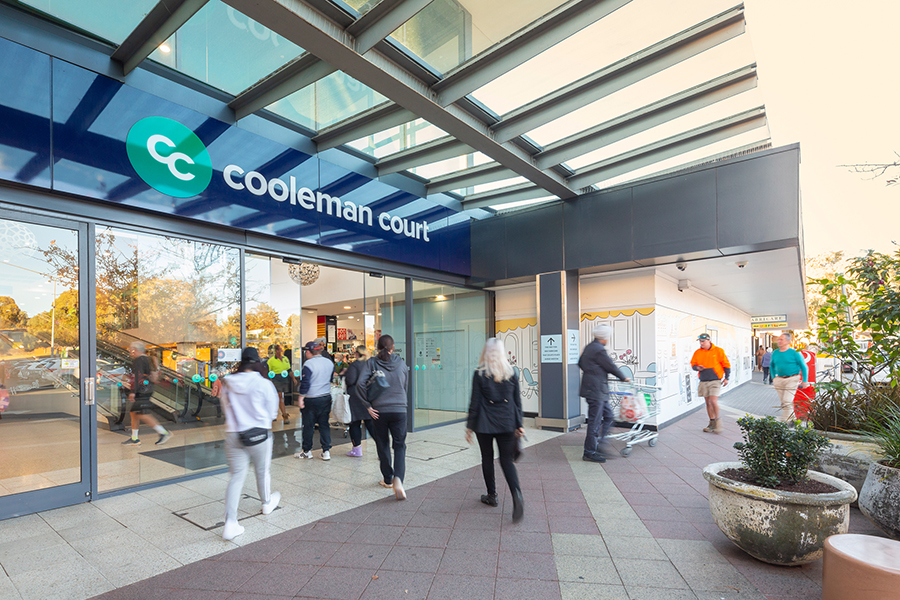The NSW Government is once again having a crack at introducing widespread Boxing Day trading. This minor reform, which already operates in most other states, follows recommendations by independent inquiries, including the Productivity Commission and Harper Competition Review Panel.
Indeed, the Harper Panel identified retail trading hours as an area for immediate reform. In seeking to remove outdated legislative restrictions under the Retail Trading Act, it is obviously hoping for a different outcome to its failed attempt to introduce such reform in 2012.
Last time, howls of opposition from an alliance of union, religious and community groups forced the government to retreat. Amidst an anti-campaign, replete with people in Santa Claus outfits marching on Parliament House, a Bill introduced to Parliament in March by the then Treasurer, and current Premier, Mike Baird, it was withdrawn in November.
The naysayers will be at it again, dusting off well-worn and tired old arguments, which is why ‘hope’ is the critical word here.
The government doesn’t have a majority to unilaterally pass legislation in the Legislative Council or ‘Upper House’. In an electoral outcome similar to other jurisdictions, including the Federal Government, the popular Baird government is at the mercy of others and forced to negotiate with the Opposition and minor parties, who will occasionally spoil their plans.
This delicate balance is a result of the March 28 election this year, when NSW voters delivered only nine of the available 21 seats in the 42-member Upper House to the returning Baird government. This left the government with a post-election total of 20 seats, which sees them wanting for two extra votes to pass legislation.
This means that the latest Boxing Day gamble comes down to the Opposition, The Greens, Christian Democrat Party or the Shooters and Fishers.
It is highly unlikely that the Luke Foley-led Opposition will support the Bill; they will instead use similar arguments to the union movement (which has labeled the draft legislation as being “utterly offensive” and stated that it is a “disgraceful attack on the state’s workers and families”).
It is difficult to see The Greens and some minor parties supporting the Bill – particularly the Christian Democrat Party. The Animal Justice Party, which has a single vote, has been previously reported as supporting the change.
Leading an anti-campaign will, of course, be the Shop, Distributive and Allied Employees Association (i.e. the shop assistants’ union).
Unless there is a change of stance by at least one other MP, it is likely, therefore, that Boxing Day trading reform will be destined for the policy graveyard.
It’s quite remarkable that the Baird government has managed to pass legislation this year for a $20-billion partial privatisation of its electricity network (a “99-year lease for 49% of the poles and wires”), but will struggle in its attempt to amend a few lines of the Retail Trading Hours Act.
If this transpires, the first source of frustration is the fact that opening up Boxing Day was a crystal-clear election commitment.
In early March, the then Treasurer and Industrial Relations Minister, Andrew Constance, wandered through Stockland Merrylands and pledged the government’s commitment to open up Boxing Day across the state. The Shopping Centre Council was with the then Treasurer for this announcement.
A key part of this pledge related to opening up opportunities in Western Sydney (including shopping centres such as Stockland Merrylands). It was a sensible pledge, particularly given that the government’s growth plans clearly identify a range of Western Sydney activity centres as the priority hubs for retail development, investment and job creation, in order to deliver sustainable growth and maximise productivity.
Across Sydney’s major centres alone that currently can’t open on Boxing Day – locations such as Bankstown, Blacktown, Burwood, Campbelltown, Liverpool and Macquarie Park – we calculated that there’s around 1.1 million square metres of retail floor space (equivalent to over 150 football fields) that isn’t being utilised on Boxing Day.
Easing the current outdated restrictions could enable the opening of around 4000 retailers across these locations, including 110 major retailers such as David Jones, Myer, K-Mart and Target, and 3800 specialty retailers, including around 300 food outlets and cafés.
Just think of the thousands of wage-creating opportunities this initiative would create. When considering the scope of these opportunities, including for retail workers, it beggars belief there could be such strong opposition to change.
A second major point is that the government has clearly outlined protections for those who don’t want to participate. It is nonsense, for instance, for people to claim that shops can be forced to open and trade if they don’t want to.
The fact that shops cannot be forced to trade is reinforced by recent analysis we have undertaken, across a number of jurisdictions and locations, where all retailers and shopping centres are able to trade on Boxing Day. Our analysis identified an average retailer participation rate of 70%. If shops could be forced to open, this figure would obviously be 100%. In other words, 30% of shops exercise their own choice not to open, as they should be freely able to do.
A good communicator, and not one to shy away from critical issues, the current Treasurer Gladys Berejiklian has clearly pointed out that “no-one will be forced to work, no-one will be forced to open their doors”.
In fact, the Bill tabled in Parliament includes a provision to protect workers from being forced to work, which provides that “a person has not freely elected to work on a day: if the person works on the day because the person has been coerced, harassed, threatened or intimidated by or on behalf of the occupier of the shops, or merely because the person is rostered, or required by the terms of an industrial agreement, to work on that day”.
That’s a pretty clear definition.
Despite this strict provision, the shop assistants’ union has claimed that: “Of course the reality is that workers will be forced to work on those days. A line in the legislation that says that workers have the right to refuse work is all well and good, but that complexly ignores the reality of the situation. No amendments can save retail workers, only keeping the shops closed can”.
This is part of the typical scaremongering about the Bill. This statement by the union features on the website of the ‘Take the Time’ campaign (see takethetime.org.au), which is a campaign that “opposes attempts by retailers, their peak representative bodies and Australian governments to remove the protection for retail closures on key public holidays”.
According to the website (at the time of writing), this campaign is supported not only by the shop assistant’s union, but also the Catholic Archdiocese of Sydney, United Care Australia, Salvation Army and Unions NSW.
For every argument mounted against the reform, it’s worth further considering the potential benefits for people.
Enabling widespread Boxing Day trading would be a great pro-consumer, pro-local and pro-fairness reform. From the analysis referenced above, in addition to wage-creating opportunities, we know that Boxing Day is a popular shopping day across the country, and people continue to vote with their feet.
Our analysis from Boxing Day last year indicates an average 25% increase in customer foot traffic on the daily December average.
These extra 25% of customers, exercising their own choice, can’t be wrong. There is clearly increased demand for Boxing Day, when compared with other available shopping days.
Boxing Day was also revealed to be the fifth-most popular shopping day in December, and the single most popular day in the post-Christmas Day period.
We provided this analysis to the government for its information and consideration.
In tabling the draft legislation, the government also outlined the sound policy basis for the reforms, and the strong case for the Bill to be passed.
The government’s second reading speech reads as follows: “The government went to the electorate in March with a public commitment to modernise retail trading laws to provide more certainty and choice for consumers, retailers and employees. It is not unusual for the New South Wales retail economy to turn over around $8 billion per month and it provides employment for 10% of the New South Wales workforce, that is, more than 375,000 jobs. Our current retail laws are outdated and increasingly out of step with contemporary patterns of work, leisure and shopping”.
These words are similar to those used by the then Treasurer, and now Premier, Mike Baird, when he spoke to the equivalent Bill in 2012. He said the purpose of the Bill was “to allow families to go shopping when they want to and businesses to open when they have customers, and to provide opportunities for more jobs and more income for employees, including students, young people and casuals”.
The most compelling argument, however, is about freedom of choice. This reform is about letting people open their shops if they want to, and letting people shop if they want to. This is about letting people not open their shops or not work if they don’t want to. The government’s intention and legislative basis for the change delivers on this outcome, including providing appropriate protections.
If the government’s gamble to introduce Boxing Day trading reform falls over as the result of an uncertain Upper House, hopefully a bright light can be shone on the fact that the freedom of choice and benefits for many people, including “workers and their families”, have been blocked and denied by certain parties.
Why should someone be forced to drive for miles, say from Western Sydney to the CBD, to participate in Boxing Day sales? Such people should have a choice to stay and shop locally, and save on their travel time, which could then be spent with their families.
Our laws need to better reflect our modern and diverse society. It is hoped that all parties will have an open mind, and help enable our sector to be more flexible through the removal of outdated legislation. If the Bill goes down, hopefully it’s merely a pyrrhic victory for the naysayers, and a case where they win the fight, but not the war.




















